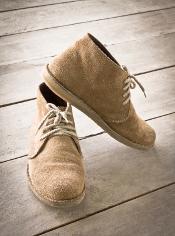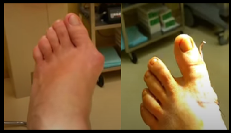4 Common Foot Problems Caused By Winter Boots
During this cold and snowy season, winter boots are essential to keep our feet warm. Essentially, these boots are thick and well-insulated to keep the cold out and lock the warmth in. They are also waterproof to keep the feet from getting wet.
Since everything is so tightly locked in, some foot problems could occur:
Foot Pain
Winter boots may be more comfortable than heeled shoes, but they can cause a lot of foot pain, particularly plantar fasciitis, due to their flat soles.
Plantar fasciitis is the swelling of a strong connective tissue called plantar fascia, located at the bottom of the foot. Pain is characterized as stabbing or burning, and is more pronounced during the first steps in the morning or after a long drive or rest. This is occurs because the plantar fascia shrinks or tightens during rest, and the shooting pain occurs when the tissue is suddenly stretched upon stepping.
Fortunately, this could easily be treated with over the counter orthotics. These slip-on soft rubber paddings can help absorb some of the shock and provide arch support.
Bunions
Bunion pains flare up during the cold season mainly because of using improper footwear – yes, it is your boots. As mentioned above, these boots are thick and don’t stretch that much like your regular shoes. The bunion can rub against the walls of the shoe causing it to be irritated and inflamed, hence bunion pain.
Bunion pains during the winter season can be controlled by using slightly bigger winter shoes, and using thicker shocks or use layered socks to compensate for the shoe size. This will provide a really soft cushion for your feet and bunion.
Fungus
Fungus love dark and cold places, an ideal condition found in your common everyday winter boots. A fungal infection can cause dry itchy skin; if it the toenails get infected they become thick and yellow. A topical antifungal is effective against fungal infections on the skin but fungus nails are harder to treat, which would require you to visit your podiatrist for proper and effective treatment.
To keep your feet from developing fungal infections during winter
time, just keep your feet dry and clean. Apply some topical antifungal cream on
any peeling or cracked areas as a preventive measure.
To keep your feet from developing fungal infections during winter time, just keep your feet dry and clean. Apply some topical antifungal cream on any peeling or cracked areas as a preventive measure. Use acrylic socks because these tend to drive moisture away from your feet, and change socks at least once a day. Also, use an antiperspirant foot powder to absorb excess moisture.
Foot Odor
Having smelly feet is a big turn off, and is very common whether it’s hot or freezing cold. Just like fungus, odor producing bacteria thrive in cold moist dark areas, and your boot is a perfect breeding spot.
To prevent embarrassing foot odors, it is best to apply some foot power before wearing your socks to absorb moisture and keep your feet dry. Always use clean socks and change once a day. Epson salt foot soak help cure foot odor, the salts kill the bacteria. Alternatively, black tea foot soak is also great in controlling foot odors because of the high levels of tannins or tannic acid, which act as a natural antibacterial. You can also use Dead Sea salt soaks to help loosen unwanted organisms from your skin.
Call (239) 430-3668 (FOOT)
for more information on Scarless Bunion Surgery



